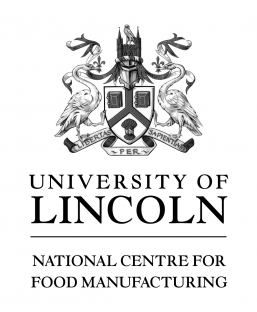Course Search
Our exciting range of food and drink courses are from some of the most prestigious Colleges, Universities and Training Providers from around the country.
Our programmes are a combination of on-the-job learning and part-time study at the National Centre for Food Manufacturing, with delivery consisting of attended learning through block release and distance learning study. The courses aim to provide comprehensive work-based training schemes for people wishing to develop their career in the food manufacturing industry, complemented by ‘off the job’ learning to develop the supervisors, managers and technologists of the future.
The FdSc in Agri-Produce and Supply Chain Management has been developed in order to best prepare students for managing multi-disciplined teams in today’s fast-paced food manufacturing environments.
Our programmes are a combination of on-the-job learning and part-time study at the National Centre for Food Manufacturing, with delivery consisting of attended learning through block release and distance learning study. The courses aim to provide comprehensive work-based training schemes for people wishing to develop their career in the food manufacturing industry, complemented by ‘off the job’ learning to develop the supervisors, managers and technologists of the future.
Students opting for this foundation degree can aim to specialise in an operations management role spanning a range of areas, including factory or supply chain management.
Our programmes are a combination of on-the-job learning and part-time study at the National Centre for Food Manufacturing, with delivery consisting of attended learning through block release and distance learning study. The courses aim to provide comprehensive work-based training schemes for people wishing to develop their career in the food manufacturing industry, complemented by ‘off the job’ learning to develop the supervisors, managers and technologists of the future.
The FdSc in Food Operations and Supply Chain Management has been developed in order to best prepare students for managing multi-disciplined teams in today’s fast-paced food manufacturing environments.
The Higher National Certificate in Electrical and Electronic Engineering has been developed to meet the training needs of those employed or interested in a career in the electronic, control engineering and related industries. Students will study a range of modules mainly at level 4 totalling 125 credit points and is equivalent to Year 1 of a university honours degree.
Our HNC Electrical / Electronic Engineering allows you to up your engineering skills and work towards becoming a professional engineer. The course will develop skills and knowledge that will allow you to bring together engineering elements in project based assignments related to the needs of the engineering sector.
This course is suitable for you if you enjoy a challenge. You will gain the skills you need to gain employment in some of the skills shortages areas around the installation of new products. You can specialise in consumer and commercial electronics or domestic electrical appliances. There is also a signal reception pathway for those who install television reception equipment.
This course has been written to provide you with a wide technical background to support a range of careers in electronic and communications engineering.
Communications Engineers design, install and maintain electronics and communications equipment for a range of industries in the sector, including television and radio broadcast, mobile networks, rail, aerospace and IT.
This is a dynamic industry and this course has a strong technical element that will help you develop the skills you need to succeed. If you are employed in the industry this course will provide you with advanced knowledge and skills which will enhance your career prospects. If you are not employed, the course will provide you with a good grounding to help you to find employment in the field.
The first year of the course involves studying a range of subjects that cover the mechanical as well as electrical and electronic fields in the engineering sector. This qualification is equivalent to 1.5 A–levels in engineering.
The second year involves a range of subjects that cover the mechanical as well as electrical and electronic fields in the engineering sector that will grant the applicant an Extended Diploma in Engineering with 180 credits. The first and second years of the course are equivalent to 3 A–levels in engineering.
The EAL Level 2 Diploma in Engineering Technologies is a Vocational Related Qualification (VRQ). It will give learners knowledge and understanding of a broad range of engineering competencies. The qualifications cover the intermediate knowledge, understanding and skills that are required by someone working in the engineering industry. It takes a hands-on approach to intermediate engineering training by providing learners with:
• Knowledge and understanding of a range of engineering competencies
• Information that will help them make more informed decisions about their career options
• Personal skills
This qualification is designed primarily for learners in the fish and shellfish industry who wish to develop intermediate skills and knowledge required to confirm occupational
competence at work.
The qualification provides choice in a wide range of automated or manual processing techniques or distribution, service and retail skills to confirm occupational competence.
This qualification is designed primarily for learners in the fish and shellfish industry who wish to develop advanced skills and knowledge required to confirm occupational competence at work. The qualification provides choice in a wide range of control, monitoring and management of processing operations or distribution, service and retail operations to confirm occupational competence.
This is the industry standard for qualified waiting on and bar staff. Successful achievement means that learners have proven knowledge skills and understanding of the fundamental practices of the food and drink service. Suitable for those currently employed in such a position, but without a relevant qualification, or for those wishing to advance their career prospects.
 cy
cy







